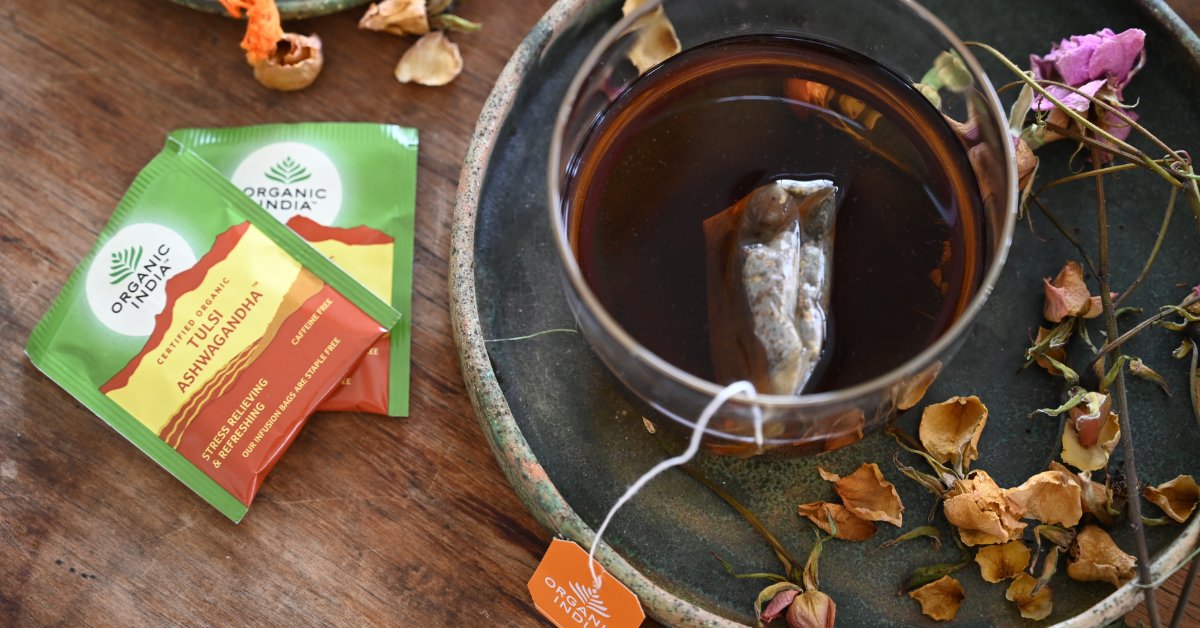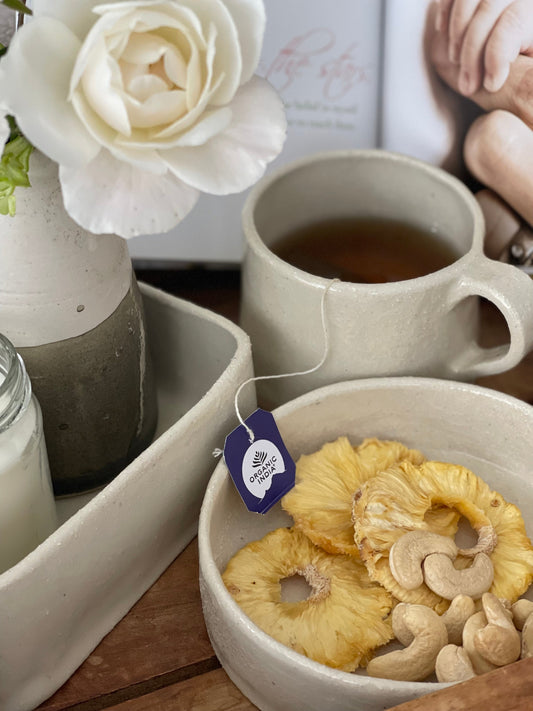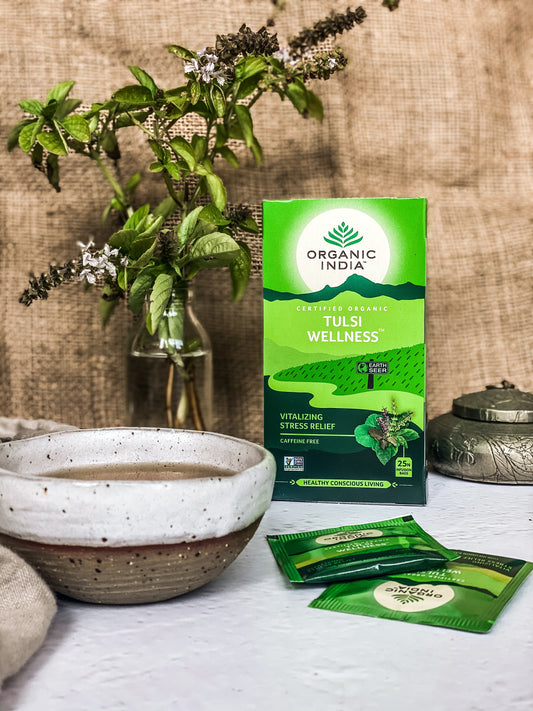Bless our hard-working immune system, working diligently for us year round. However, sometimes it responds to substances that are harmless with a little too much gusto, causing us to experience allergic symptoms such as nasal congestion, runny nose, coughing, itchy, watering eyes, asthma or skin problems. Common seasonal and environmental allergens include pollen, dust mites, mould and animals, which can affect us all differently, or not at all.
There are several factors that contribute to your likelihood of developing allergies and the severity of the response, such as: inherited tendencies, the strength of your digestive fire, the amount of toxins in your system, your current state of balance and the amount of the allergen you’ve been exposed to.
So, to help prevent allergies and reduce the symptoms once exposed, we need to do as much as we can to keep our digestion and elimination systems strong and healthy and stay in balance. Here are some tips on how to do this!
- Gently cleanse
Gently eliminating toxins is a wonderful way to strengthen digestion and reduce allergic reactions, and is especially important for those of us who are prone to allergic reactions.
Try a gentle cleansing diet of lighter foods for a week to assist the body’s natural process of removing any accumulated toxins that can impede your body’s ability to cope with allergens. Good news: Autumn is a great time for this! For your week of lighter eating, go for easy to digest foods such as cooked, lightly-spiced organic (if possible), fresh vegetables, whole grains and split mung bean soups.
During your cleanse week especially: avoid cold, heavy foods such as wheat, meat, sugar, raw and processed foods.
An Ayurvedic herb that is great for helping with the removal of toxins and therefore for alleviating the symptoms of allergies, is Triphala.
- Eat according to the season
Autumn is generally characterised with increased coolness, dryness, lightness, winds and changeable weather as we move from Summer toward Winter (Vata-aggravating). This can push us out of balance and lead to increased allergy symptoms, so it is important to antidote these qualities to regain balance. This means increasing our diet with warm, cooked, nourishing, slightly oily and grounding food.
- Include primarily cooked foods that are sweet, sour, salty and mildly spicy. Think cinnamon porridge, kitcheree with veggies and sweet pumpkin soups.
- Avoid too much dry or raw food as there will already be a tendency to dryness and coolness in Autumn.
- Eat plenty of good quality oils, in particular ghee, the Ayurvedic Superfood, that not only antidotes dryness but promotes better digestion.
- Drink Tulsi Tea
Drinking plenty of warm, hydrating, Ayurvedic herbal teas is perfect given that we want to avoid cold, heavy drinks containing things like dairy or sugar as they slow down and decrease your digestion, putting a strain on your body’s ability to deal with allergies.
Look to drink herbal teas that will promote healthy digestion, support long-term respiratory tract health, promote a calm nervous system and mind and reduce inflammation. The famous Indian herb Tulsi (also known as Holy Basil) is perfect as it is known in Ayurvedic Medicine to do ALL of these things and more. Tulsi is wonderful as a single herb, but ORGANIC INDIA has created a range of herbal infusions that blend Tulsi with other beneficial herbs. Teas that may assist with natural allergy relief include:
- Tulsi Turmeric Ginger Tea
- Tulsi Lemon Ginger Tea
- Tulsi Licorice Spice Tea
- Tulsi Ashwagandha Tea
- Tulsi Tummy Tea
- Tulsi Wellness Tea
- Tulsi Cleanse
- Reduce your exposure
It might sound obvious, but really being mindful of what sets you off, anticipating when you are likely to come into contact with it, and minimising your exposure is going to have a huge impact. We may not ever be able to eliminate the allergy, but by reducing the quantity of allergens that enter our body, we will greatly decrease our symptoms.
- Clean and Oil your sinuses: Neti and Nasya
One way you can protect yourself from exposure to allergens is to gently rinse your nostrils with a warm, diluted saline rinse using a Neti Pot. This can be particularly good for flushing out any irritants.
It is great to follow Neti up with some warm oil to nourish and sooth the nasal passages and also to form a protective layer to prevent allergens from coming into direct contact with your nasal membranes. This practice is called Nasya and can also be practiced with or without Neti. You can use warmed Cold Pressed Black Sesame Oil or Nasya Oil (also called Anu Oil).
- Keep moving with Yoga
Create a practice that calms and grounds energy downward to offset the agitation created by Autumn lightness, windiness and changeability and regain balance. Think about incorporating:
- Alternate nostril breathing (Nadi Shodhana)– take advantage the extra prana in the air and use it to relax any constriction.
- Twists to regulate the intestines.
- Slow sun salutes with the breaths in each pose.
- A long Savasana – stay warm, cover up with cosy socks and a blanket.
Ayurveda has so much to teach us on our quest toward healthy, conscious living.












